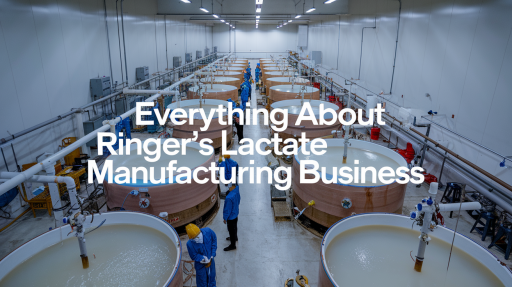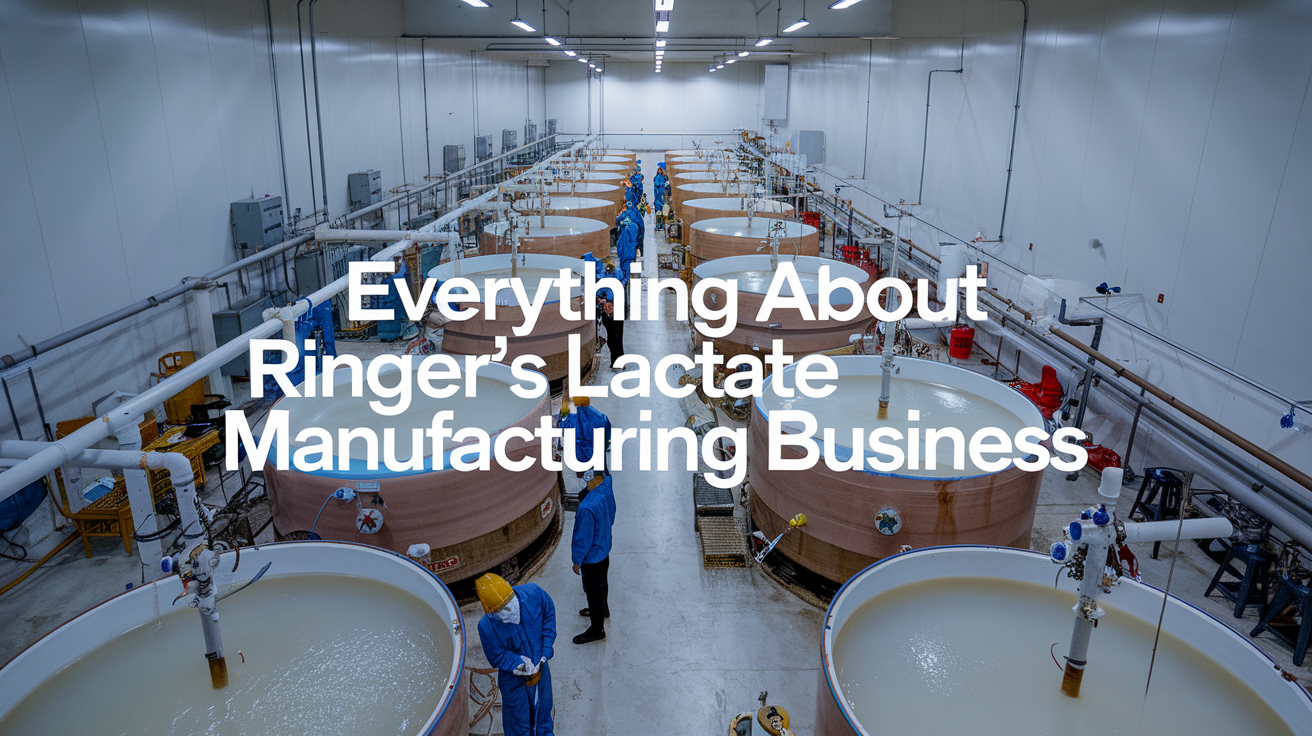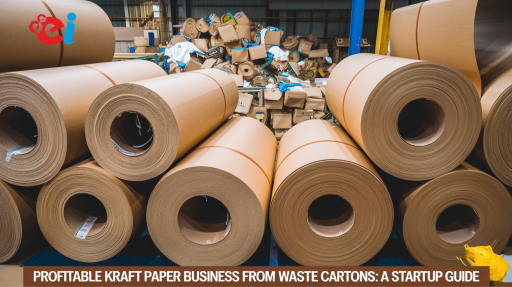Ringer’s Lactate, an intravenous fluid accessible in the healthcare sector, is crucial in treating dehydration and electrolyte imbalances as a resuscitation fluid during surgeries. There is great demand for medical-grade fluids for treating dehydration and making investment into the Ringer’s Lactate manufacturing a highly lucrative opportunity. This article explains in detail how to set up the Ringer’s Lactate business, discussing the market potential, the raw materials, and the equipment used. It most importantly, the Ringer’s Lactate manufacturing process.
Market Potential of Ringer’s Lactate Manufacturing Business
The demand globally for IV fluids, including Ringer’s Lactate, has been increasing on account of increased cases of hospitalizations, surgeries, and emergency medical care. The room for this business has the market potential for various reasons:
- Increased Healthcare Demand: Owing to a rise in population and general health awareness, hospitals and clinics require a constant supply of Ringer’s Lactate.
- Increased Surgical Procedures:Surgeons constantly require Ringer’s Lactate during surgeries because they regularly administer IV fluids.
- Increase in Emergency Room Services:Ambulances, trauma centers, and emergency wards administer Ringer’s Lactate IV fluids whenever they have them available.
- Growth in the Pharmaceutical Industry: In the health sector, IV fluids are required for patient care, making Ringer’s Lactate an essential outcry from the pharmaceutical sectors.
These factors make the setting up of Ringer’s Lactate manufacturing a rightful grab for an entrepreneur.
Key aspects of a Ringer’s Lactate manufacturing business:
Production process:
- Ingredient sourcing: Pharmaceutical-grade materials such as sodium chloride, potassium chloride, calcium chloride, and sodium lactate of high quality are obtained from suppliers recognized for their reliability.
- Water purification: Water in the highest purity possible to gain sterility against contaminants.
- Mixing and blending: In a controlled environment, accurately weighed amounts of each chemical will be mixed according to an established formula.
- Sterilization: During this stage, the solution is sterilized by eliminating any microorganism, usually by heat or filtration.
- Aseptic filling: The container (bags or vials) previously sterilized inside an Aseptic Filling area will be filled with the sterile solution.
- Quality control: Quality control will be an ongoing process from the manufacturing operations-a pH adjustment test, osmolarity checks, sterility checks, ect.
Regulatory compliance:
- Good Manufacturing Practice (GMP): Under the strict GMP laid down by their regulators (FDA) to maintain the consistency and safety of products.
- Quality assurance: An extensive quality assurance system is in place for all the steps of production, from documentation to batch records and product release.
Market considerations:
- Target customers: Hospitals, clinics, surgical centers, ambulance services, and other healthcare providers.
- Packaging and labeling:We package products in appropriate sizes with clear labeling that includes protocol relevant to the solution, composition, expiry date, storage, and transport recommendations.
- Distribution network: Establishment of a reliable distribution network for the purpose of delivering the products to available healthcare settings across the region.
Potential challenges in Ringer’s Lactate manufacturing:
- Preventing sterility: Absence of any contamination during production is extremely important since the product is administered intravenously.
- Correct formulation: Precise weighing and mixing of chemicals are very important for ensuring the proper electrolyte balance.
- Storage and stability: Keeping the complete stability during the transportation and storage of the solution.
- Regulatory compliance: A regulatory regime that keeps up to date with evolving regulatory requirements and standards.
Equipment Required for Ringer’s Lactate Production
The following equipment is required to manufacture Ringer’s Lactate:
- Mixing Tanks: To mix the raw materials with distilled water.
- Filtration System: For removal of impurities.
- Sterilization Equipment: For maintaining the sterility of the final product.
- pH Testing Kits: For ensuring the solution is balanced.
- Filling Machines: For automatically filling IV pouches or bottles.
- Sealing Machines: Packaging to eliminate any chance of contamination.
These machines are key in ensuring efficient manufacturing of high-quality Ringer’s Lactate.
Regulatory Requirements for Ringer’s Lactate Manufacturing
Manufacturers must follow strict guidelines when producing Ringer’s lactate, as it is a medical-grade product. Some of these regulations include:
- Good Manufacturing Practices (GMP) – Ensures safe and high-quality production.
- Drug Licensing – Required to manufacture and distribute IV fluids.
- ISO Certification – Ensures compliance with international quality standards.
- FDA Approval –In some countries, the Food and Drug Administration requires approval.
Following these guidelines will allow the Ringer’s Lactate manufacturing to avoid legal hindrances while keeping a good reputation in the market.
Investment and Profitability in Ringer’s Lactate Business
Initial Investment
The cost implication for starting the Ringer’s Lactate manufacturing business includes:
- Raw Materials
- Machinery and Equipment
- Regulatory Approvals
- Factory Setup and Infrastructure
An initial investment for setting up a new Ringer’s Lactate plant with minimum production ranging from ₹50 lakh up to ₹2 crore, depending on the size of production.
Profitability
- It is ensured that the demand for Ringer’s Lactate creates steady sales.
- The profit margin ranges between 25% and 40%, proving to be a cash cow.
- Large-scale production could churn revenue anywhere between ₹5 crore to ₹20 crore annually.
With this rising demand, it becomes pretty evident that the Ringer’s Lactate manufacturing business has good profit prospects.
Conclusion
The Ringer’s Lactate manufacturing business is a positive undertaking in the pharmaceutical sector. By observing due diligence to the Ringer’s Lactate manufacturing process, the manufacturers are able to assure quality production alongside adherence to standards. Growing demand from hospitals, clinics, and emergency care units offers great profit potential for this business.
If you want to invest in a very stable and highly demanded business in the medical field. You will be doing yourself a favor if you invest in the Ringer’s Lactate manufacturing business. To establish a successful and profitable venture, one must maintain continued quality control and operate a well-equipped manufacturing unit.






